Breaking! 30 Slow Lorises Reportedly Kept As ‘Pets’ Are Rescued & Released Back Into The Rainforest In Indonesia
A team of conservationists has reintroduced 30 Javan slow lorises back into their rainforest home in Indonesia. Mount Halimun Salak National Park (TNGHS) carried out the release operation, along with the Center for Natural Resources Conservation (BKSDA) and International Animal Rescue (IAR) Indonesia.
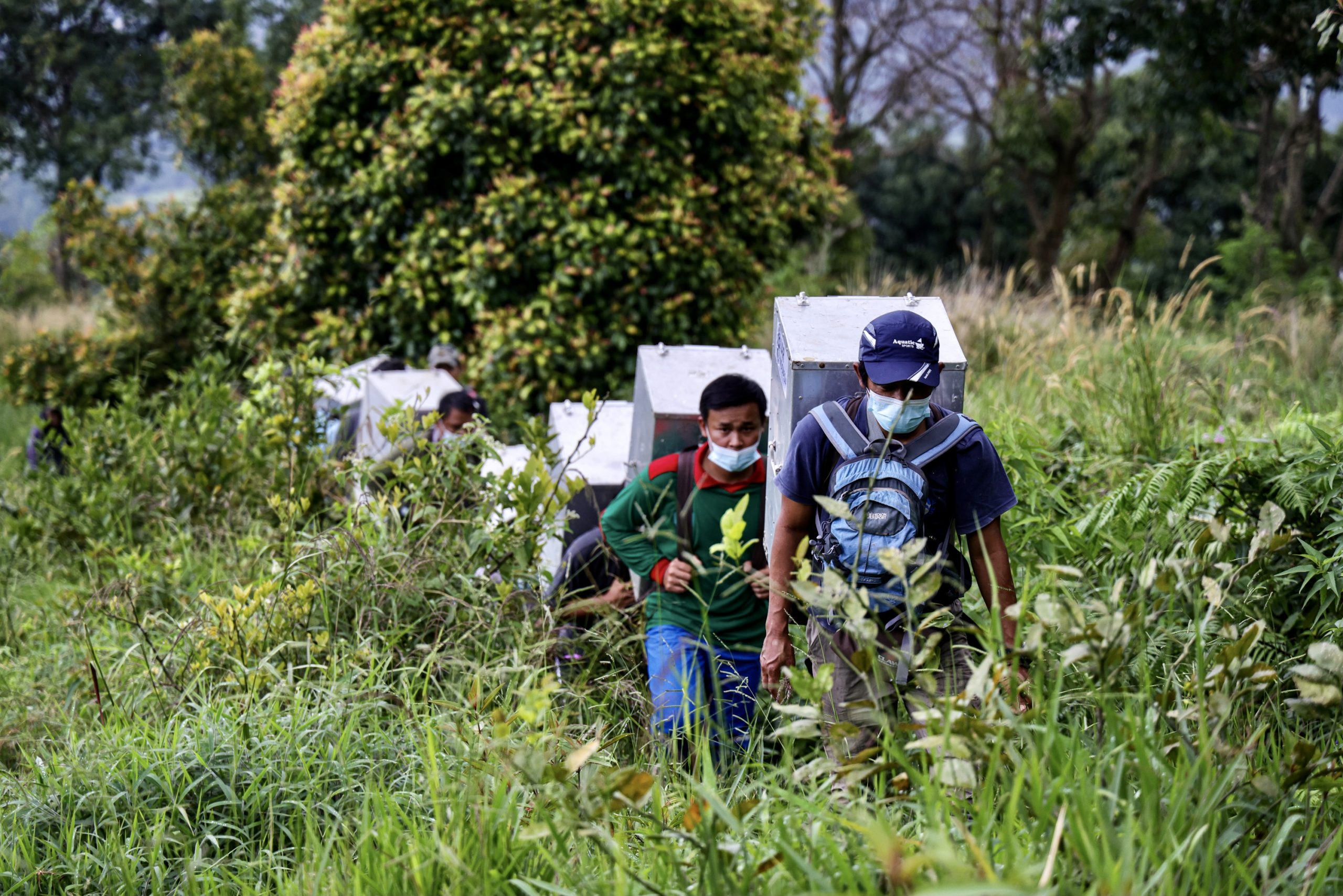
As per Ammy Nurwati, the head of BKSDA, most of the lorises had been surrendered by members of the community to various sections of BKSDA in West Java, and had been entrusted to the IAR Indonesia Primate Center in Bogor to undergo treatment and care. Before being released back into the wild, the lorises had undergone a recovery and treatment process to stimulate their natural behavior. Starting with medical examinations and time in quarantine, they also underwent behavioral observations until they were declared healthy and ready to be translocated for habituation and then final release.
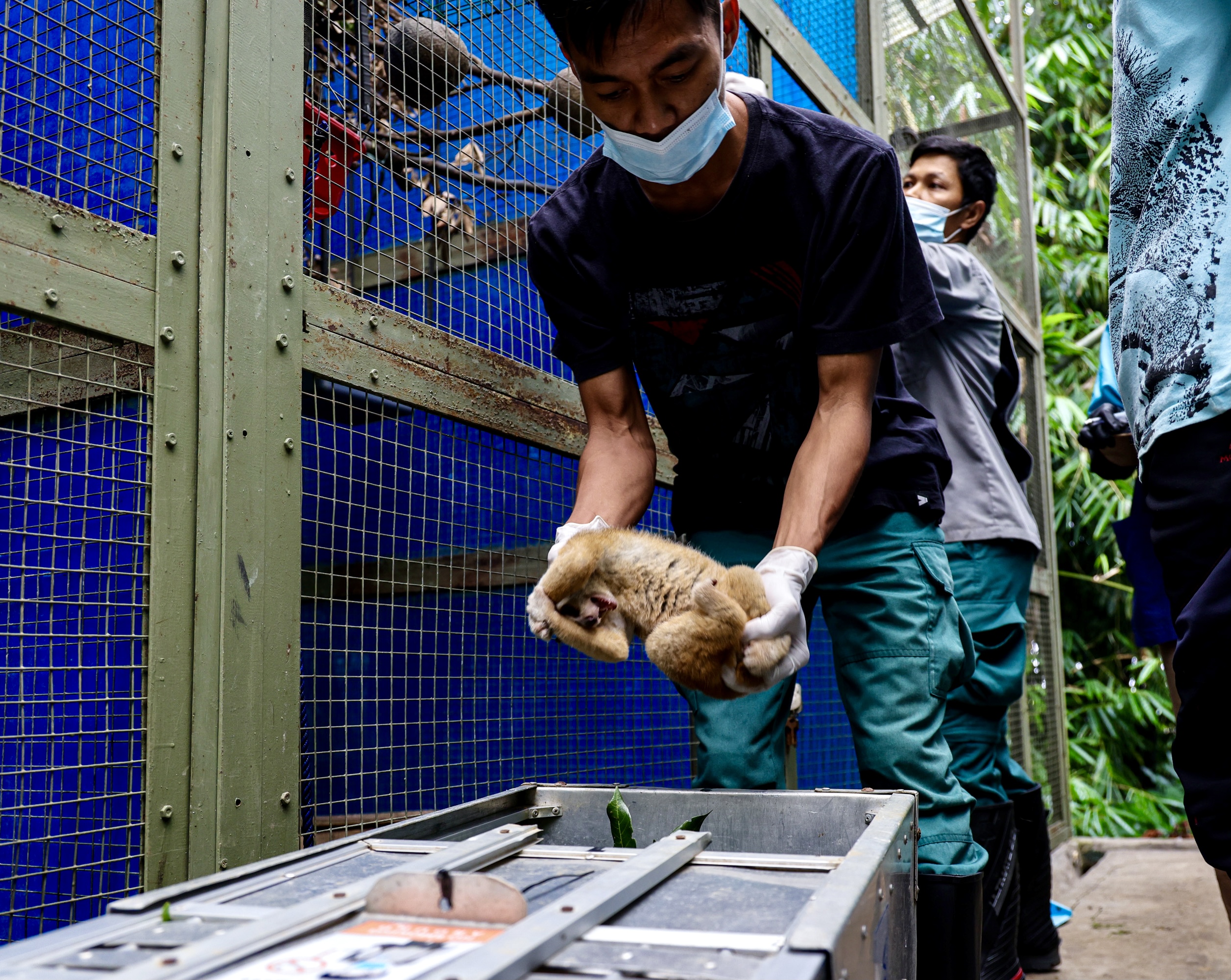
“During the habituation process, the team in the field continues to observe and record their progress every night. If, during the habituation period, all lorises are active and don’t have any abnormal behaviors, then they can be released into the wild,” Ammy shared in a statement sent to WAN. “They have to go through this long process to restore their natural instincts and ensure that they can survive and reproduce in their natural habitat.”
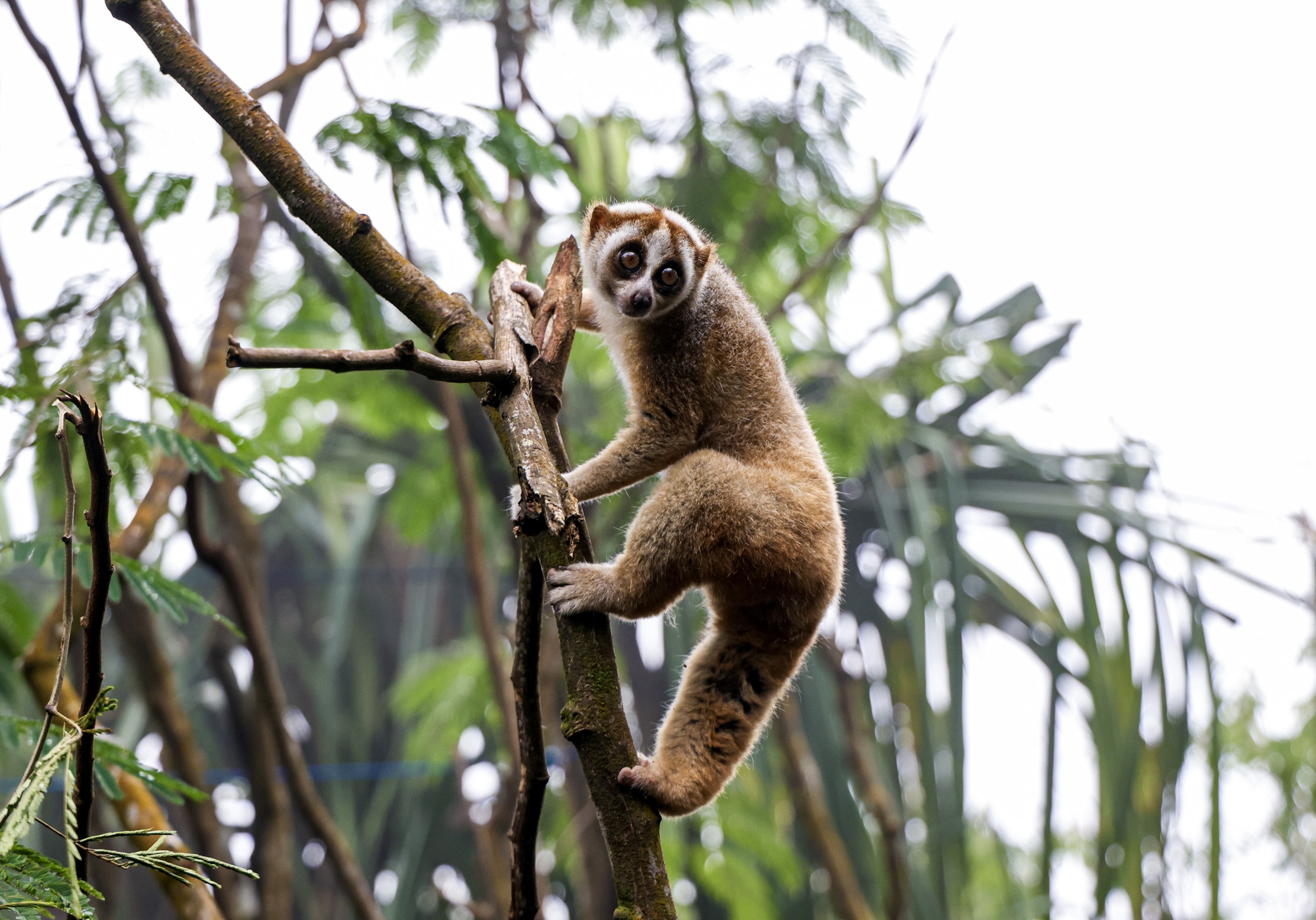
Ammy further explained that the slow loris release program was created to support the sustainability of ecological processes in the conservation area, as well as to maintain and increase the population of primate species whose numbers are decreasing.
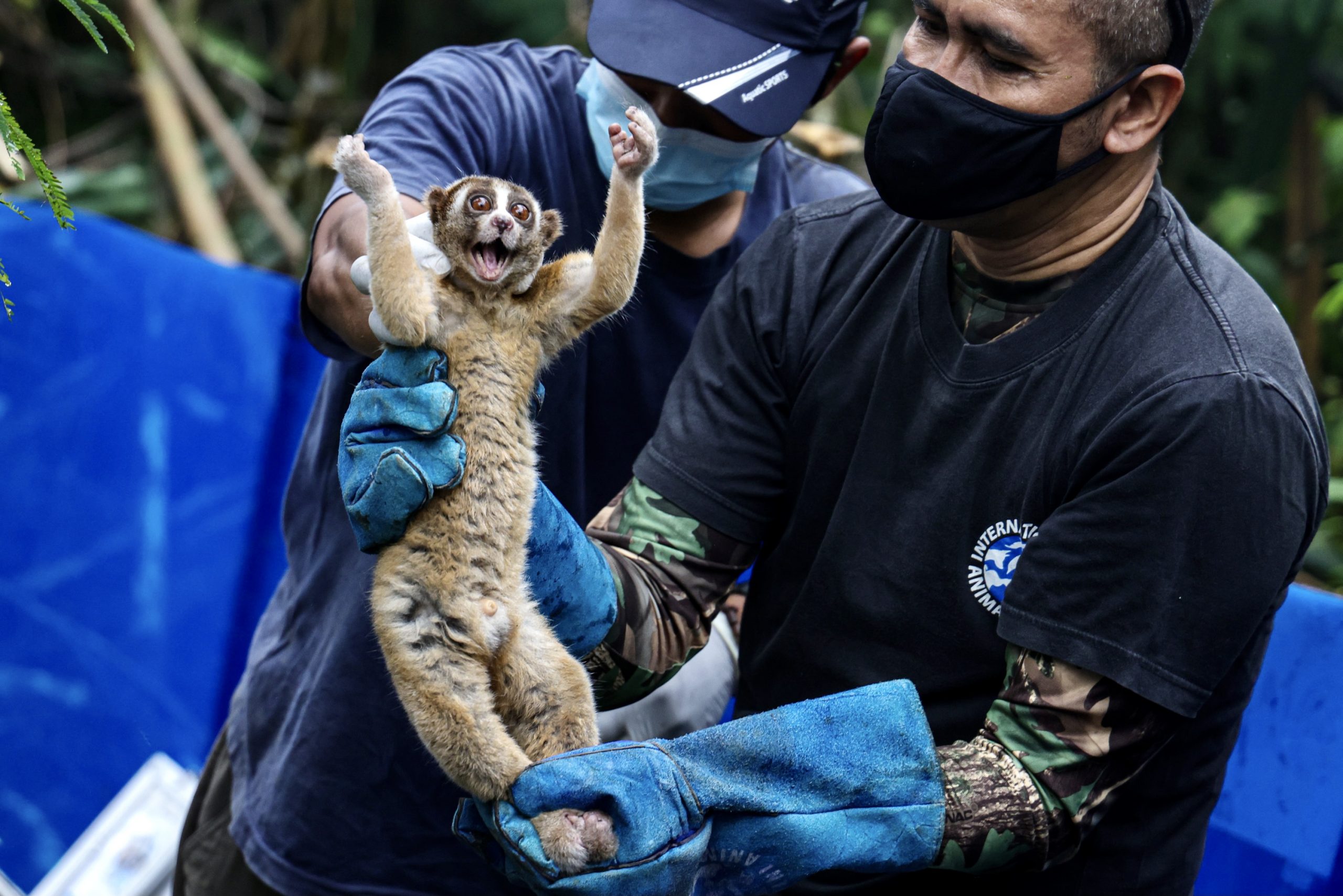
Ahmad Munawir, Head of the TNGHS Office, said that the release of rehabilitated animals and conflict animals in Mount Halimun Salak National Park has become one of the most important programs in terms of saving wildlife. The slow loris is one of the wild animals that is vital to maintaining the balance of the ecosystem in the park. The release area has an ecosystem considered suitable as a place for the preservation and protection of slow lorises in terms of area security, availability of food and shade, habitat carrying capacity, and the level of predator threats. The hope is that with this release, the slow lorises can reproduce and thrive.
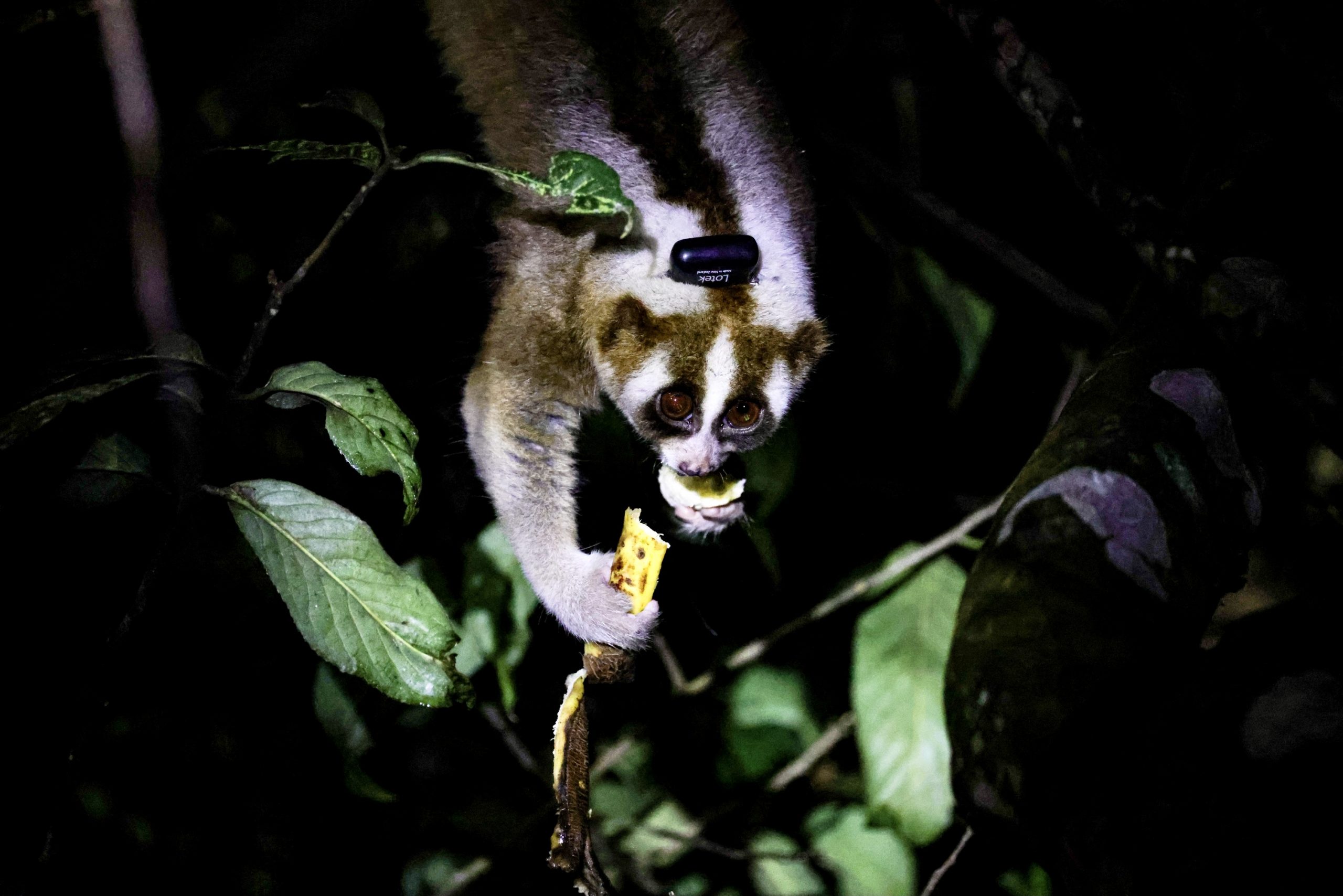
In order to minimize all risk of disease transmission, the safety procedures at IAR’s primate center in Bogor have been strengthened even further due to the COVID-19 pandemic situation.
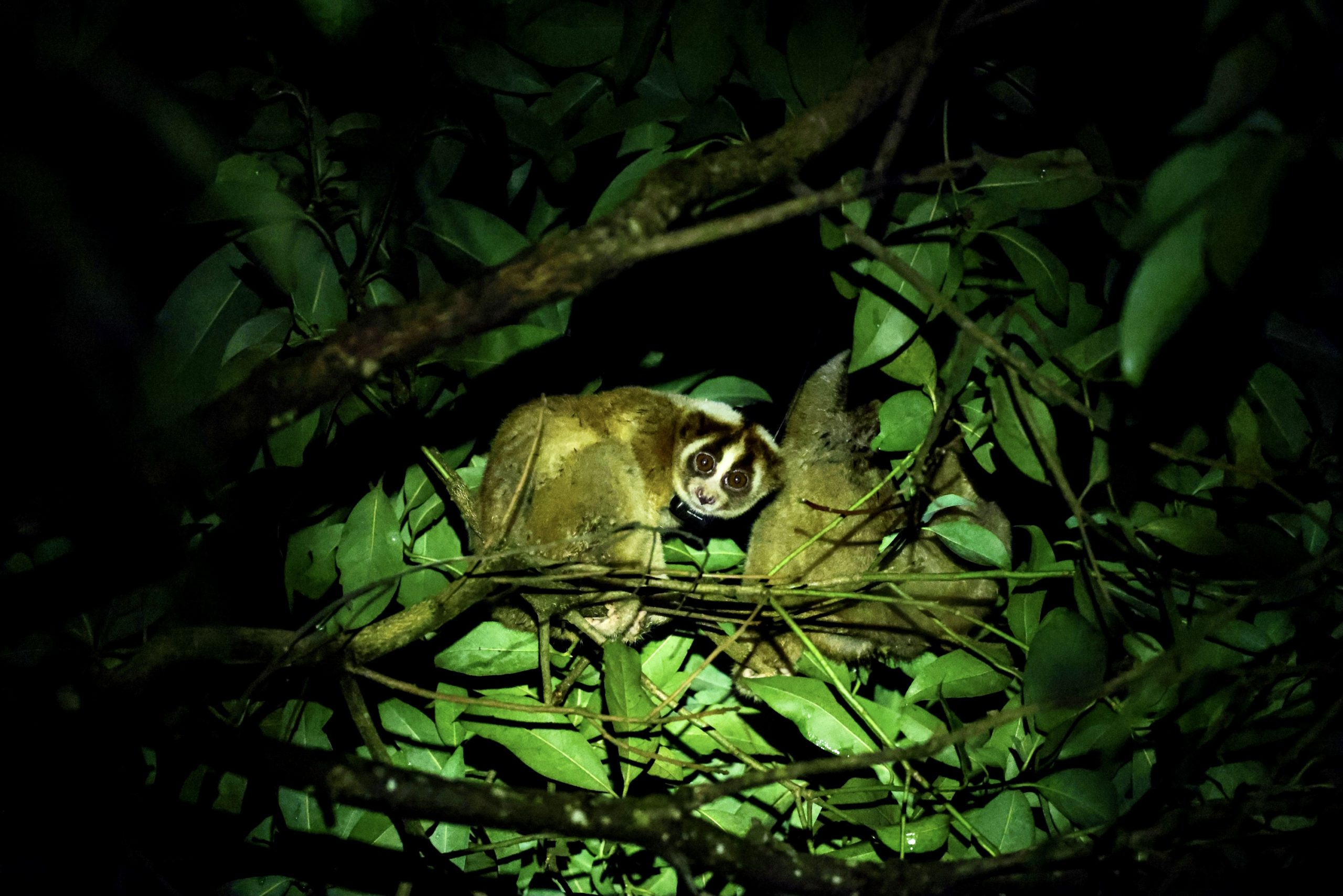
“The health and safety protocols in this release activity were improved to minimize the risk of disease transmission. From the animal-side, a swab-test was carried out in the laboratory facility of the Center for Study of Primates – IPB University, and the results were all negative. From the human side, the implementation of all protocols was carried out correctly,” stated Alan Knight OBE, IAR Chief Executive. “All adjustments in this release procedure are part of efforts to eliminate the potential for transmission of COVID-19 and other zoonotic infectious diseases, so that our release and other conservation activities can continue, even in the midst of the COVID-19 pandemic.”
You can help all animals and our planet by choosing compassion on your plate and in your glass. #GoVeg